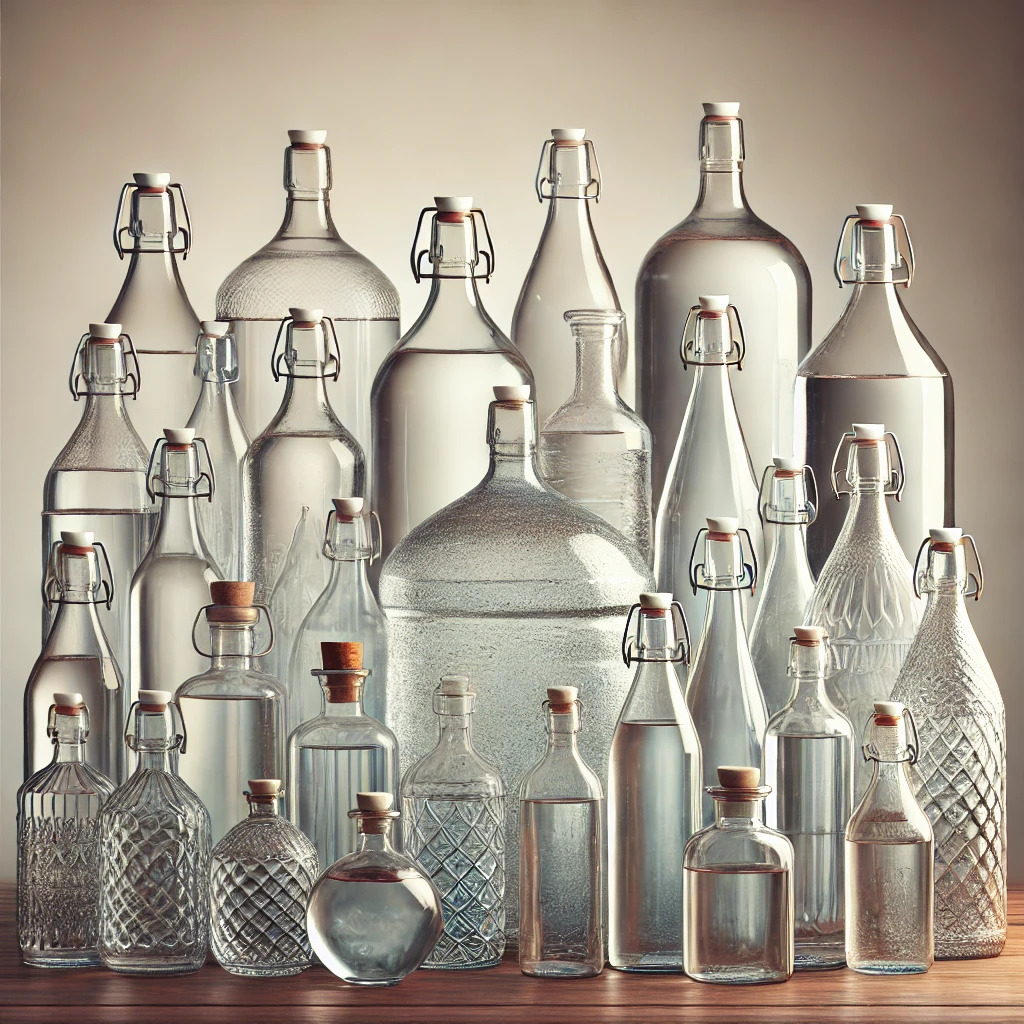
Introduction
In today’s health-conscious world, the type of water bottle you use can significantly impact your well-being. While plastic, metal, and glass water bottles are all popular choices, each comes with its own set of advantages and drawbacks. This article explores whether there are health benefits to using glass water bottles compared to other types, focusing on safety, cleanliness, taste, environmental impact, and overall user experience.
The Health Benefits of Using Glass Water Bottles
Why Choose Glass?
Glass water bottles are becoming increasingly popular due to their numerous health benefits. Unlike plastic and metal, glass is non-toxic, chemically inert, and does not leach harmful substances into your water. This makes it an excellent choice for health-conscious individuals.
Safety and Chemical Leaching
One of the primary concerns with plastic water bottles is the potential for chemical leaching. Chemicals like BPA and phthalates, often found in plastics, can seep into your water, especially when the bottle is exposed to heat. Even BPA-free plastics can leach other harmful chemicals over time. Metal bottles, while generally safer, can sometimes impart a metallic taste or leach trace amounts of metals.
Glass, on the other hand, is chemically inert, meaning it doesn’t interact with the contents inside. This ensures that your water remains pure and free from harmful contaminants, providing a safer drinking experience.
Cleanliness and Hygiene
Maintaining cleanliness in water bottles is crucial to prevent bacterial growth. Glass bottles are non-porous, which means they don’t harbor bacteria and are easier to clean. Unlike plastic, which can retain odors and stains, glass remains clear and odor-free with proper cleaning.
Taste Preservation
Water stored in glass bottles tends to taste better compared to plastic or metal containers. This is because glass doesn’t impart any flavors or odors to the water. The pure taste of water is maintained, making it a preferred choice for those sensitive to taste changes.
Environmental Impact
Glass bottles are more environmentally friendly than plastic. Plastic bottles contribute significantly to environmental pollution, taking hundreds of years to decompose. In contrast, glass is 100% recyclable and can be reused indefinitely without losing its quality or integrity.
Durability and Longevity
While glass bottles are more fragile than plastic or metal, they are designed to be durable and long-lasting. Many glass water bottles are made with reinforced glass to withstand daily use. Investing in a high-quality glass bottle can provide years of safe, clean hydration.
Aesthetic and Design
Glass water bottles often come in sleek, modern designs that appeal to the aesthetically inclined. They are available in various sizes and styles, making them a stylish accessory for everyday use.
Comparing Glass to Plastic and Metal Bottles
Glass Water Bottles
Advantages:
- Non-toxic and chemically inert
- Pure taste without any flavor transfer
- Environmentally friendly and recyclable
Disadvantages:
- Heavier and more fragile
- Higher initial cost
- Requires careful handling to avoid breakage
Plastic Water Bottles
Advantages:
- Lightweight and portable
- Inexpensive and widely available
- Flexible and less likely to break
Disadvantages:
- Potential for chemical leaching
- Environmental pollution due to non-biodegradability
- Retains odors and stains
Metal Water Bottles
Advantages:
- Durable and long-lasting
- Insulated options keep water cold or hot
- Generally safer than plastic
Disadvantages:
- Can impart a metallic taste
- Heavier than plastic or glass
- Possible trace metal leaching
Frequently Asked Questions(FAQs)
Q. Do glass water bottles break easily?
A. Glass water bottles are designed to be durable and often use reinforced glass. While they are more fragile than plastic or metal, careful handling can prevent breakage.
Q. Are there any chemicals in glass water bottles?
A. No, glass is chemically inert and does not contain harmful chemicals like BPA or phthalates, making it a safe option for water storage.
Q. How should I clean my glass water bottle?
A. Glass water bottles can be easily cleaned with warm, soapy water. Many are also dishwasher safe. Regular cleaning will prevent bacterial buildup and maintain the purity of your water.
Q. Is it safe to use glass water bottles for hot liquids?
A. Most glass water bottles can handle hot liquids, but it’s essential to check the manufacturer’s guidelines to ensure the glass is tempered and safe for high temperatures.
Q. Are glass water bottles environmentally friendly?
A. Yes, glass is 100% recyclable and can be reused indefinitely without losing its quality, making it an eco-friendly choice compared to plastic.
Q. Do glass water bottles affect the taste of water?
A. No, glass is non-reactive and does not impart any flavors or odors to the water, preserving its pure taste.
Conclusion
Choosing the right water bottle can have significant implications for your health and the environment. Glass water bottles offer a range of benefits, from ensuring safe, chemical-free hydration to preserving the taste of your water and reducing environmental impact. While they may require more careful handling, the advantages of using glass over plastic or metal are clear, making them a superior choice for those prioritizing health and sustainability.
